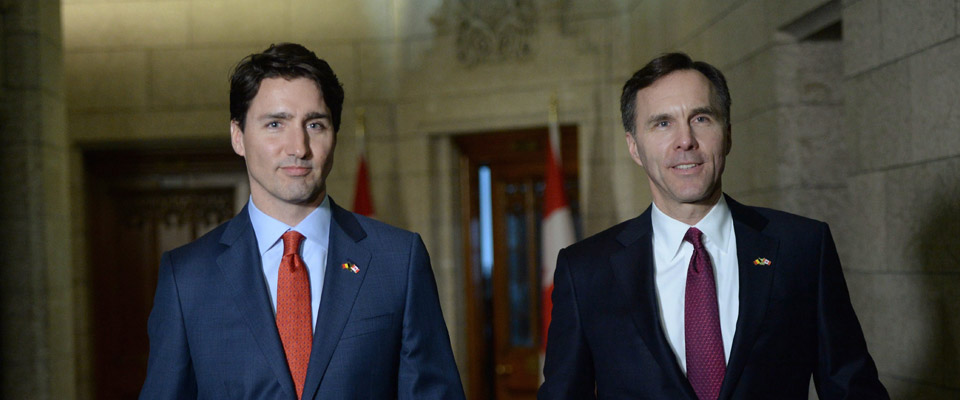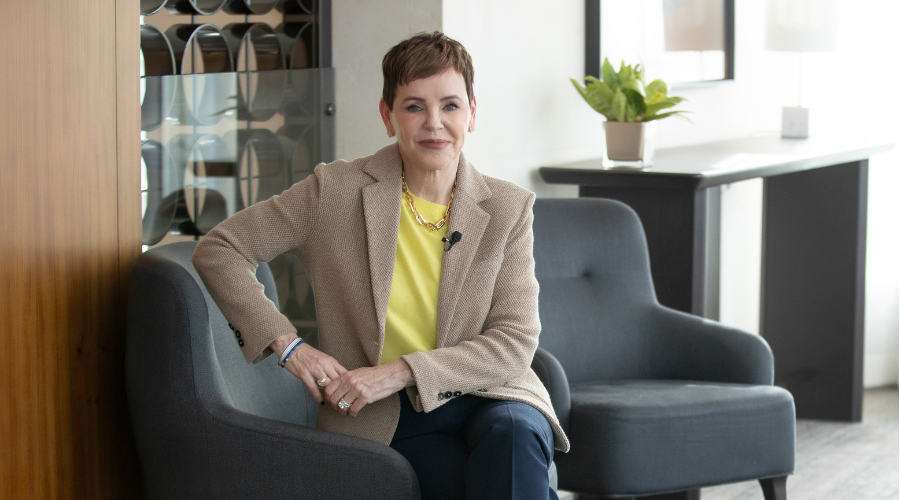If I were a grandmother, I’d be tickled pink by the federal budget and as the mother of a university student, I’m encouraged by it. Rookie Finance Minister, 53-year-old Bill Morneau, has pledged to revitalize the economy and to help the middle class.
The 2016-17 deficit will be $29.4-billion, almost $20-billion more than promised in the Liberal’s October election platform. Entitled “Growing the Middle Class,” the budget is an exercise in deficit spending that demonstrates concern for those who’ve lost their jobs, coupled with an emphasis on the growing disparity between the wealthy and the less fortunate.
The funds are going to a $8-billion middle-class tax cut, $11.9-billion for infrastructure spending, $8.4-billion for indigenous peoples, $2.4-billion to expand employment insurance for unemployed workers in hardest-hit Alberta, Saskatchewan and Newfoundland.
The Canada Child Tax Benefit has increased by $23-billion, although those making more than $150,000 will receive less.
The expenditure for youth employment is $165-million. The budget is good news for university and college students who are receiving a 50 per cent increase in the amount of their grants vs. loans, as well as a longer period of time to repay the loan.
The budget predicts deficits until 2021, with no plans to return to a surplus.
As Morneau addressed the House, he nostalgically recalled the wealth-sharing years following World War II. The post-war years was first the time working families in Canada could afford to buy a home– even in Vancouver and Toronto—and finance one or two cars. Workers could expect a good job for life, often unionized, with health and pension benefits and generous government support to send their kids to university.
Those glory days are long gone. If you grew up in the fifties and sixties, you’ll remember envisioning a future built around what was an intrepid belief that endless prosperity was a God-given right.
Today our kids understand that these “rights” can be taken away faster than they are handed out and that prosperity is vulnerable to global economic upheavals.
Decisions made in Saudi Arabia about increased oil production impact the working middle class in Alberta and Newfoundland more than our own economic policies.
Our government is using Keynesian economics to undo the harm done by much bigger interests than Canadian ones, and although political pundit Andrew Coyne called this plan a 1970s budget for 2016, it’s hard to see how the absence of deficit financing could help the struggling middle class, the jobless or Millennials.
At the same time, there is precious little in the budget for today’s seniors, except for a critical increase to the Guaranteed Income Supplement, which will begin this summer, and returning the age to 65 for future payments of Old Age Security. No enhancements to the Canadian Pension Plan, no change to RRSP rules, either money going in or money forced to go out after the age of 71. No return to Canada Post home delivery. Importantly, no plan to reach a renewed accord with the provinces about health care or to reverse Stephen Harper’s three per cent health care cuts.
Middle-class seniors are one group that has not moved the current government to action.
After delivering the budget, Morneau commented that he believes that “Canadians are more interested in seeing things improving for their kids and grandkids.”
Rona Ambrose, the interim leader of the Conservative Party called the budget an exercise in reckless spending. “This is not a good day for the taxpayer,” she said. Tom Mulcair, the leader of the NDP, drilled down to specifics, showing how the improvements in EI “will only help 50,000 newly unemployed workers” while asserting another 800,000 pending cases will not be settled in the claimants’ favour.
Both Ambrose and Mulcair, disparaging as they are about the budget, find themselves in a dangerous spot. The approval rating for Justin Trudeau was running at 70 per cent the day before the budget, and that means the Conservative vote is lower than it was on election day, after five-months of Liberal governance. For the NDP, the numbers spell disaster. Their base is being severely eroded by an energized Liberal Party that has come to occupy both the centre and the left on the Canadian political landscape.
The optimistic spending in the government’s budget is a boon for young adults, for those needing assistance while searching for another job, for indigenous people and for families struggling with the cost of raising kids. The new budget is politically savvy and generously geared to the largest sectors of the population.
The absence of a plan to get rid of the deficit can be seen as a political liability, but when you’re young or even middle-aged, deficit issues aren’t usually considered that pressing.
For those of us living in retirement, the budget is cause for a moment of reflection, more political than number-crunching. Much of the recent turmoil in the U.S. has to do with a disaffected working middle class. They feel betrayed by their political leaders.
In Disclaimer, a British online publication, journalist and former Beijing Bureau Chief for Bloomberg News Robert Delaney defines this group as those who use at least half of their paycheques to feed themselves (and their children) and keep a roof over their heads. Delaney sites two main reasons why white middle-class rage in America has hit peak levels:
- Supply-side, or “trickle-down”, economics doesn’t advance their interests.
- Their prospects are even bleaker now that rapid advances in robotics, big data, and artificial intelligence ensure that many of them will be scrubbing floors, serving french fries, or unemployed unless they learn to code.
The new budget ensures that middle-class rage won’t erupt in Canada as it has in the U.S. And so, the honeymoon with Justin Trudeau continues. As for seniors, we’ll always have our memories.































